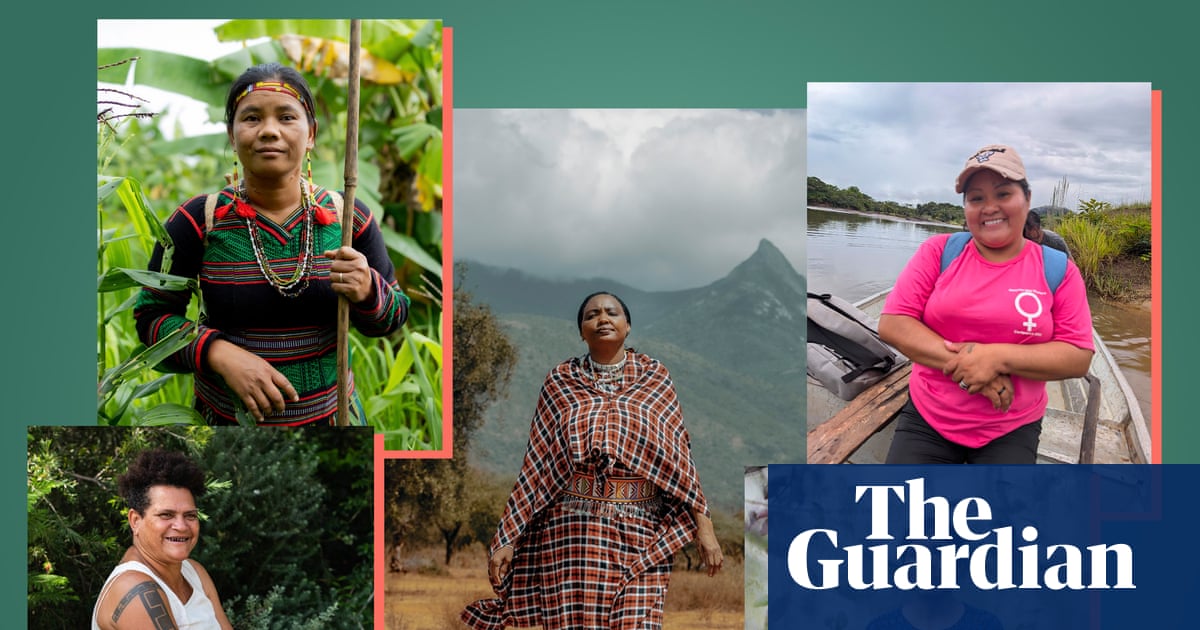
"Adopted in 1995, the document outlined the oppression of women around the world and demanded governments recognise the social, cultural, economic, and religious rights of the Indigenous peoples in their constitutions and legal systems. Thirty years on, communities still face discrimination, threats and barriers that limit access to education, health services and routes out of poverty. Meanwhile the climate crisis, extractive industries and criminal gangs have reduced safe territories, destroyed livelihoods and created food insecurity."
"Looking ahead to November's Cop30 in the Amazon, the call is clear: the world must stop seeing Indigenous women as victims and recognise us as the strategic actors we are, says Teresa Zapeta, executive director of Fimi. We spoke to five women leaders about their work and inspiration. Florence Jaukae Kamel, Papua New Guinea Florence Jaukae Kamel, known as Bilum Meri', of the Kama Nagamiufa clan, part of the Alekano ethnic group, in Papua New Guinea."
The Beijing Declaration of Indigenous Women (1995) demanded recognition of Indigenous peoples' social, cultural, economic, and religious rights within constitutions and legal systems. Decades later, Indigenous communities still encounter discrimination, threats and structural barriers that restrict access to education, health services and pathways out of poverty. The climate crisis, extractive industries and criminal gangs have reduced safe territories, destroyed livelihoods and caused food insecurity. Indigenous women increasingly act as community defenders and cultural protectors, leading resistance and resilience. Calls ahead of Cop30 urge recognition of Indigenous women as strategic actors rather than victims, and highlight individual leaders and grassroots initiatives.
Read at www.theguardian.com
Unable to calculate read time
Collection
[
|
...
]